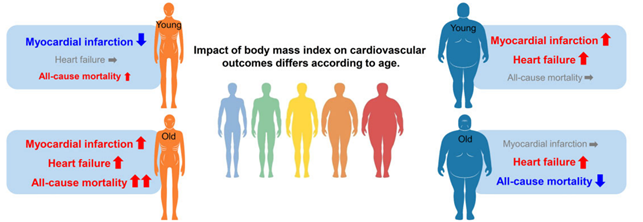Heart Attack: What are the Risk Factors for Someone with Obesity?
Blog post description.
8/29/20253 min read


Heart Attack: What are the Risk Factors for Someone with Obesity?
Great question! Obesity is one of the strongest risk factors for heart disease, including heart attacks. Carrying excess body fat—especially around the abdomen—affects the heart and blood vessels in several ways. Here are the main risk factors for heart attack in someone with obesity:
1. High Blood Pressure (Hypertension)
Extra body weight increases the strain on the heart and blood vessels.
This can lead to chronically high blood pressure, which damages arteries and raises heart attack risk.
2. High Cholesterol and Triglycerides
Obesity often leads to higher levels of LDL (“bad”) cholesterol and triglycerides, and lower levels of HDL (“good”) cholesterol.
This imbalance contributes to plaque buildup in arteries (atherosclerosis).
3. Type 2 Diabetes and Insulin Resistance
Obesity is a leading cause of insulin resistance, which can progress to type 2 diabetes.
Diabetes significantly increases the risk of heart disease and heart attack.
4. Inflammation
Fat tissue, especially visceral fat around the organs, releases inflammatory chemicals.
Chronic low-grade inflammation damages blood vessels and accelerates atherosclerosis.
5. Sleep Apnea
Common in people with obesity, sleep apnea stresses the heart due to repeated drops in oxygen during sleep.
This raises blood pressure and heart strain.
6. Metabolic Syndrome
Many people with obesity develop a cluster of conditions—high blood pressure, high blood sugar, abnormal cholesterol, and large waist circumference—that together greatly increase heart attack risk.
7. Physical Inactivity
Obesity is often linked with lower physical activity levels, which further weakens cardiovascular health.
✅ Key takeaway: Obesity doesn’t just increase heart attack risk directly—it also drives other major risk factors like high blood pressure, diabetes, and high cholesterol.
Here are some preventive strategies that can help reduce heart attack risk for someone living with obesity:
🥗 1. Nutrition & Eating Habits
Focus on a balanced diet rich in vegetables, fruits, whole grains, lean proteins, and healthy fats.
Limit processed foods, sugary drinks, and foods high in saturated or trans fats.
Portion control and mindful eating can help manage calorie intake.
🏃 2. Physical Activity
Aim for at least 150 minutes of moderate-intensity aerobic activity (like brisk walking, cycling, or swimming) per week.
Add strength training 2–3 times per week to improve muscle mass and metabolism.
Even small increases in daily movement (taking stairs, walking breaks) make a difference.
⚖️ 3. Weight Management
Even a 5–10% reduction in body weight can significantly lower blood pressure, cholesterol, and diabetes risk.
Focus on sustainable lifestyle changes rather than quick fixes.
💊 4. Medical Management
Work with a healthcare provider to monitor blood pressure, cholesterol, and blood sugar regularly.
Medications may be prescribed if lifestyle changes alone aren’t enough.
In some cases, weight-loss medications or bariatric surgery may be considered.
😴 5. Sleep & Stress
Address sleep apnea if present (often with CPAP therapy).
Aim for 7–9 hours of quality sleep per night.
Practice stress-reducing habits like meditation, yoga, or deep breathing.
🚭 6. Avoid Smoking & Limit Alcohol
Smoking dramatically increases heart attack risk — quitting is one of the most powerful steps for heart health.
Limit alcohol to moderate levels (if at all), as excess can raise blood pressure and add empty calories.
✅ Bottom line: Heart attack risk can be reduced significantly through lifestyle changes, medical care, and consistent monitoring. Even small steps add up over time.
Here’s a simple, practical weekly action plan designed for someone with obesity who wants to lower their heart attack risk. This is a general guideline — it’s always best to adapt it to your personal health needs and check with a healthcare provider before starting.
🗓️ Weekly Heart-Healthy Action Plan
Daily Habits
Hydration: Drink 6–8 glasses of water.
Sleep: Aim for 7–9 hours nightly.
Movement breaks: Stand, stretch, or walk for 5 minutes every hour if sitting for long periods.
Mindfulness: 5–10 minutes of deep breathing, meditation, or journaling.
Nutrition Goals
Breakfast: Oatmeal with berries, or eggs with vegetables.
Lunch: Lean protein (chicken, fish, tofu) + whole grain (brown rice, quinoa) + vegetables.
Dinner: Grilled fish or beans + roasted vegetables + salad.
Snacks: Fruit, nuts, or Greek yogurt (instead of chips/candy).
Limit: Sugary drinks, fried foods, and processed snacks.
Exercise Routine
(Aim for at least 150 minutes of moderate activity per week)
Monday: 30-min brisk walk
Tuesday: Strength training (bodyweight or light weights, 20–30 min)
Wednesday: 30-min cycling, swimming, or walking
Thursday: Rest or gentle yoga/stretching
Friday: 30-min brisk walk + 10-min strength training
Saturday: Fun activity (hiking, dancing, sports)
Sunday: Rest, stretching, or light yoga
Weekly Check-Ins
Track progress: Write down meals, activity, and mood in a simple journal or app.
Weigh-in: Once a week at the same time of day (don’t obsess over daily fluctuations).
Health monitoring: If you have high blood pressure, check it at home or at a pharmacy.
✅ Key Tip: Start small. Even if you can’t do the full plan right away, begin with one or two changes (like walking three times a week and swapping soda for water) and build from there.